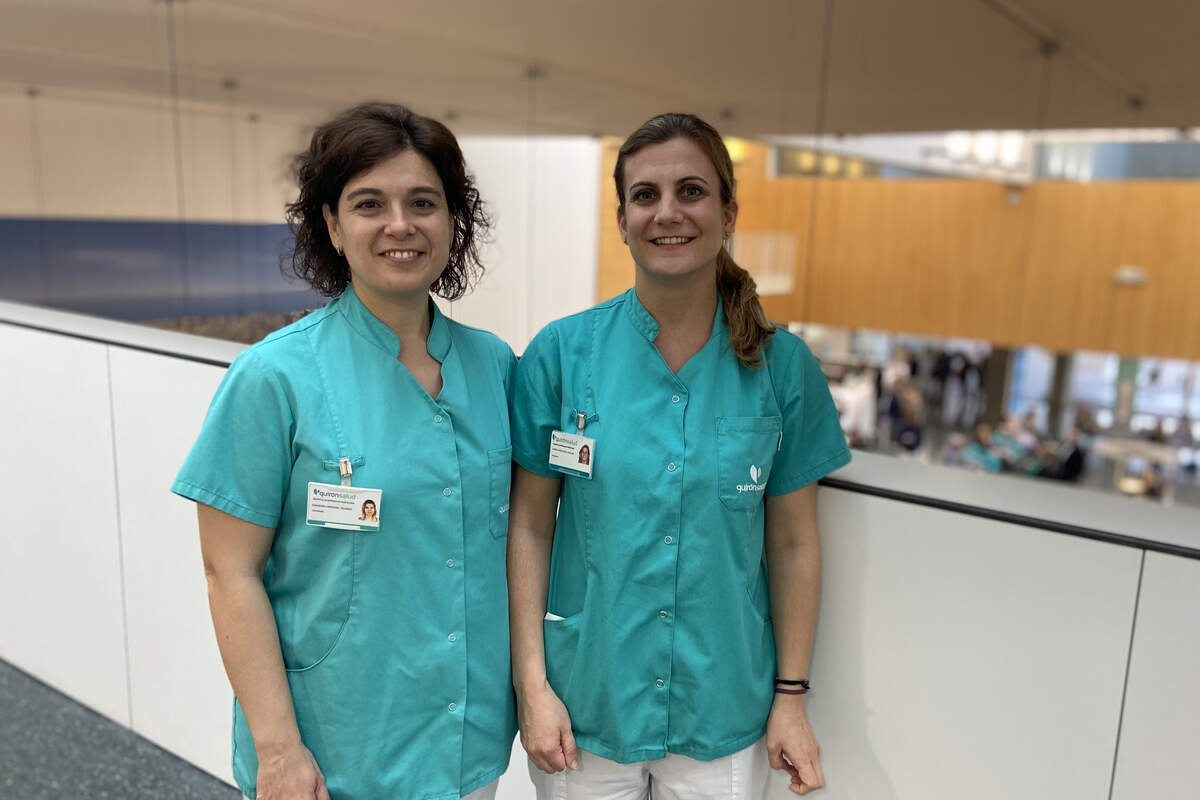Heart diseases represent one of the major causes of morbidity and mortality worldwide, which is why continuous monitoring of a heart patient appears as a key pillar to ensure not only their survival, but also their quality of life.
It also covers a wide range of conditions, from hypertension to myocardial infarction, which require a comprehensive and personalized approach to their management.
Monitoring a heart patient goes beyond simple visits to a cardiologist; It involves constant contact between the patient and the medical team, with the aim of monitoring their progress, adjusting treatment as needed and providing emotional support.
In this task, the work of the nursing team stands out as crucial. Cardiology nursing consultations are an essential component of the comprehensive care of patients with heart disease.
In the words of Xavier Viñolas, President of the Cor d’Hospital Quirónsalud Barcelona, “The focus has traditionally been on direct medical intervention, with doctors playing a central role in assessment and treatment. However, nurse consultations provide a comprehensive, patient-centred approach that does not only address physical aspects.” , but also the emotional and social aspects of cardiac care.
Three diseases are emphasized in consultations: heart failure, acute coronary syndrome, and atrial fibrillation
Recognizing this fact, the Cardiology Service of Quirónsalud Barcelona has launched specialized nursing consultations that provide personalized follow-up to patients suffering from the three most common cardiovascular diseases: heart failure, acute coronary syndrome, and atrial fibrillation.
This service will be led by two nurses, Mrs. Catalina Garcia and Mrs. Yolanda Carmona, two nurses with more than 10 years of experience in the cardiology unit.
The goal of these consultations “in addition to better monitoring these patients, is to provide them with greater security in managing their disease.
That’s why we do an important educational mission so they can know the symptoms and warning signs and so they can control risk factors.
All this allows them to have security and achieve more independence in their homes,” explains Catalina García. Likewise, in some conditions such as heart failure, “we titrate/optimize drug therapy when we see that the patient needs it, which allows us to react quickly and control the parameters.” Health care more quickly without having to wait to visit a cardiologist,” Yolanda Carmona.
Face-to-face educational visit and telephone follow-up
Patients are redirected to specialist nursing consultations in 90% of cases by the same cardiologists on the unit as when a chronic patient requiring constant monitoring is identified. In 10% of cases, referral is made through other medical services.
Nursing consultation has the same structure for the three types of patients. It starts with a face-to-face visit, in some cases in-hospital, where the nurse provides all kinds of education about the pathology adapted to each age profile, recommended lifestyle habits: diet and physical activity as well as identifying signs of the disease. Main alert
After this initial visit, a follow-up telephone appointment is scheduled, the frequency of which depends on each patient, usually every two weeks.
In follow-up calls, patients share with Catalina or Yolanda their feelings about the medication and check whether the recommended health habits have been reinforced.
In the same call, it is possible to request a change of medication if necessary and check that all tests and assessments included in the clinical manual have been performed correctly.
All of this allows us to better monitor the patient and improve face-to-face medical visits.
The emotional management of the patient is also an important aspect because thanks to this monitoring “we build solid relationships with patients that allow us to explore their fears, beliefs and even some of their health goals,” says Catalina García, one of the charge nurses. For consultations.
They allow early detection of complications and improved treatment
Teamwork is essential, so both are in constant contact with the cardiologists responsible for each patient and with the hospital’s multidisciplinary team.
As explained by Dr. Xavier Viñolas “Regular follow-up by nurses allows early detection of potential complications, such as decompensated heart failure or arrhythmia, which can prevent readmission and improve the quality of life of our patients.”
The doctor points out that thanks to the educational work carried out in these consultations, “patients feel more empowered and this patient empowerment is crucial to encouraging adherence to treatment and promoting a healthier life.”
This is precisely another essential aspect of nursing counseling: its focus on prevention.
The nursing team can identify cardiovascular risk factors and work with patients to implement prevention strategies such as changing dietary habits, encouraging regular physical activity, or smoking cessation.
By proactively addressing these risk factors, nursing consultations can help prevent the development of heart disease and reduce the risk of serious cardiovascular disease.
Preparing the patient before and after the operation
In addition to managing consultations for patients with heart failure, acute coronary syndrome, and atrial fibrillation, Catalina Garcia and Yolanda Carmona perform an important task in providing pre- and post-operative information to patients undergoing surgery.
Before the intervention, it is ensured that the patient has all the information about the intervention, removing doubts about his admission to the hospital and what the recovery steps are, as all of this gives him peace of mind and safety.
After the operation, they pay a visit to the factory and after discharge, they carry out a telephone follow-up that mainly focuses on early detection of complications or adverse effects of the intervention.

“Infuriatingly humble social media buff. Twitter advocate. Writer. Internet nerd.”









